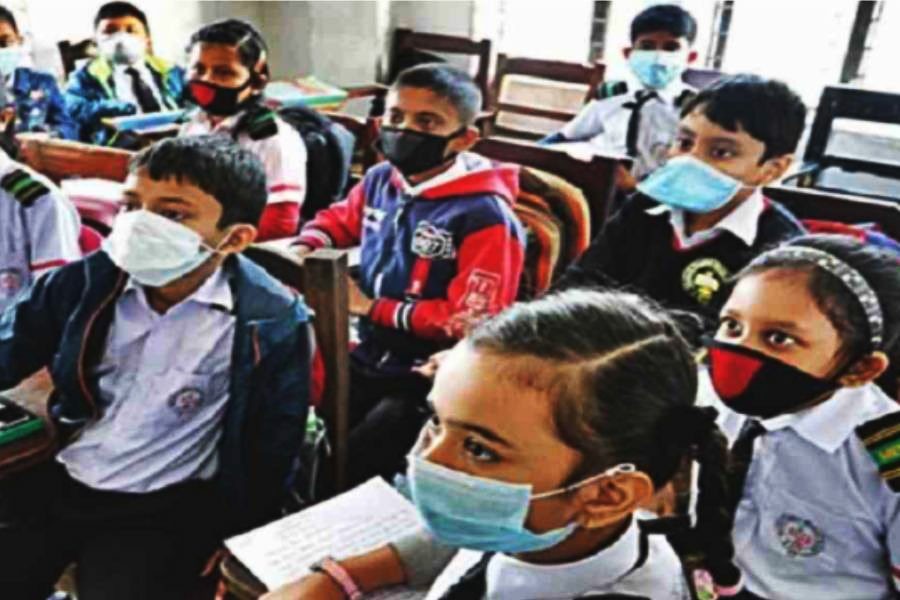To check the spread of the coronavirus, especially its latest variant, the Omicron, the government has declared closure of schools and colleges. Restricting students' physical attendance in classes will thus, it is hoped, curb the transmission of the virus among the students. The education minister told the media from a meeting of the National Curriculum and Textbook Board (NCTB) on January 21 that the fear that children might be infected by the coronavirus played a part in the government's decision to close schools and colleges for two weeks from January 21 to February 6. True, as reports go, children are susceptible to the latest, highly transmissible, Omicron variant of the Covid-19. So, children's getting infected by the virus in schools is obviously concerning. Children being the most valuable asset of any society, the issue of their safety deserves to be considered with the highest priority. There is no question about that. But the question that would still arise is the efficacy of the option of closing schools to keep them safe from the virus. If exposure to the virus from physical contact is the issue, then one wonders how their attending small family gatherings could be stopped. Also, their parents and other family elders will not be confined to their homes. Since the government has not indicated if it may resort to lockdowns to control the pandemic's spread, it leaves open the possibility of the children's visiting amusement parks, shopping malls and various tourist spots with their parents or elders.
So, lockdown or no lockdown, there will be small and large gatherings of people-unless, of course, the people's awareness about the health risk that the pandemic poses to public health is raised to a higher level than it is now. School closure, for all practical purposes, may not be the surest way to protect schoolgoing children from virus infection. So, the efficacy of the option of closing primary and secondary schools or other higher level educational institutions in stopping the spread of the virus has not yet been proved beyond doubt. In that case, there is the scope to have a rethink of the measure of closing the educational institutions to curb the virus's spread. That is more so considering the study findings that that Omicron, unlike its predecessor, the Delta, is not life-threatening.
As such, ensuring observance of the health guidelines in schools can be an alternative way to ward off the Covid-19 in the classroom. The government, meanwhile, has instructed to the effect that online classes at the schools and colleges would continue. But what will happen to the majority of the schoolchildren living the rural areas to whom the internet is something still remote and a luxury? Worse, where the internet is accessible, the devices and the data prove to be too costly for them to afford. What will then the rural children do during their time at home? Their days without school will also be those of total emptiness so far as their education is concerned. However, unlike the urban children, their days will be full of other kind of activities and not boring like their urban counterparts. For they will have ample opportunity to pass the time with their playmates, or join their parents to do household chores. And if the parents of the rural children begin to think, based on their past experience of school closure, that this time too months may go before the schools resume classes, that would be bad news, especially, for their schoolgoing daughters. In fact, during the days of school closure rural parents may think of engaging their sons in housework and marrying off their girl children. Under any circumstances, such negative fallout from the school closure should be avoided.


